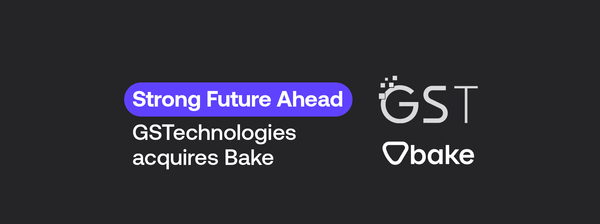KNOW WHAT YOU HOLD: A Look Into What Gives Cryptocurrencies Their Value
While guesting in a popular TV show in Amsterdam last week, European Central Bank (ECB) President Christine Lagarde was, at one point, asked by the host if she has any advice for those who would consider investing in cryptocurrencies.
Not mincing her words, she said that cryptos are “worth nothing” and that it is also “based on nothing”.
As crypto investors, we ask: Is it true? Are we putting in time, money and effort into something that has no value at all?
In this article, we address these questions by providing information on what gives cryptocurrencies their worth or value, and why investing in the crypto space is analogous to investing in the future today.
KEY TAKEAWAYS
- What Makes Bitcoin So Valuable?
- Value = Utility * Rarity * People
- Opinions Don’t Matter
WHAT MAKES BITCOIN SO VALUABLE?
Invented in 2008 by a still unknown individual or group known as Satoshi Nakamoto, bitcoin (BTC) is the world’s first-ever cryptocurrency. In the first half of 2021, it reached an all-time high of over $64,000 and is also referred to by many as “digital gold.”
Impressive? Most indeed. However, many remain puzzled: Where does BTC get its value from? Is it really worth that price?
There are many ways to address such questions. For us, however, the best way to present the case for BTC’s price and status is to highlight the problems that it –– or, rather, its inventor –– has managed to solve: censorship and inflation.
BTC is censorship-resistant. In essence, it cannot be controlled by governments, banks or other central authorities. Why? Because it resides on a blockchain –– a digitally distributed, decentralized, immutable, public ledger that exists across a network, and which gives users of the Bitcoin blockchain network full control and authority over their BTC holdings and transactions.
For this reason, BTC is deemed to have given freedom to those who are experiencing financial repression and opportunity for the unbanked to participate in a decentralized monetary system.
Another attribute that has made BTC appealing to investors is the idea that it is more resistant to inflation than fiat currencies or that it can be used as a hedge against inflation.
How so?
BTC was designed to have a limited supply of just 21 million in total. Also, the amount of BTC mined is reduced by half every four years. For these reasons, BTC is fundamentally a deflationary asset. Unlike fiat currencies, it can’t be manipulated by changing interest rates nor reproduced by increased money printing.
There are other problems that BTC solves, such as the reversibility of electronic payments, double spending and the Byzantine Generals Problem - which leads us to our main point: BTC is valuable because it has solved real-world problems and that it re-introduced or popularized a technology that opened windows of opportunity for both innovators and investors to derive more solutions to make their lives and the world we live in a better place.
And since BTC captured the imagination of many, other cryptocurrencies subsequently emerged to also offer various use-cases and solutions – which has led to the increased popularity of cryptos, in general, and the increase in the number of people using or investing in them.
VALUE = UTILITY * RARITY * PEOPLE
In his presentation titled “Crypto Market Outlook 2022: Bullish, Bearish, Boring?”, our Co-Founder & CEO Dr. Julian Hosp further explained that the value of a cryptocurrency can be derived from three attributes: utility (does it have an actual use case?), rarity (does it have a limited supply?) and people (is it used by many?).
As for BTC’s case, we already discussed in the previous section that it solves many problems — which, again, is one of the many reasons why it has value. In addition to that, BTC is also used by many as a store of value. In fact, some analysts expect that BTC will not only compete with gold in this arena but will also take away market share from it.
As for other cryptocurrencies, some are created and are utilized for on-demand liquidity, cross-border payments, financial inclusion, to enhance supply chain management or business processes and for many other such purposes.
OPINIONS DON’T MATTER
At one point during the same presentation, Julian also stated that “Opinions don’t matter. Results do.”
It is exactly why we continue to be crypto investors.
Though ECB President Lagarde’s “humble opinion” holds weight, given her public stature, the value of investing in cryptocurrencies and in the crypto space as a whole is not just sensible to the likes of us, but highly apparent and tangible.
As iconic investor Warren Buffet once famously said, “Price is what you pay, value is what you get.” For most of us, there’s more to investing in cryptocurrencies than just taking profit. It is passion. It is faith. It is the belief that innovation can actually solve real-world problems today, not in the future, that compels crypto investors and enthusiasts to put their hopes in something new and promising, rather than in a system that has failed us all time and again.
This is, simply, why we invest in the crypto space and are proponents of cryptocurrencies: we have seen all the positive results or benefits that they offer, and are willing to explore their other potentials.
Ask Madame Lagarde’s son if he agrees, we’re confident that he will say “Yes.” And why not? He’s also a crypto investor. Like us.
If you want to use our services and generate passive income from your cryptos, but are not yet a registered Cake DeFi user, you may click here to sign up and start generating passive income with us.
So, sign up now and happy “baking”!




